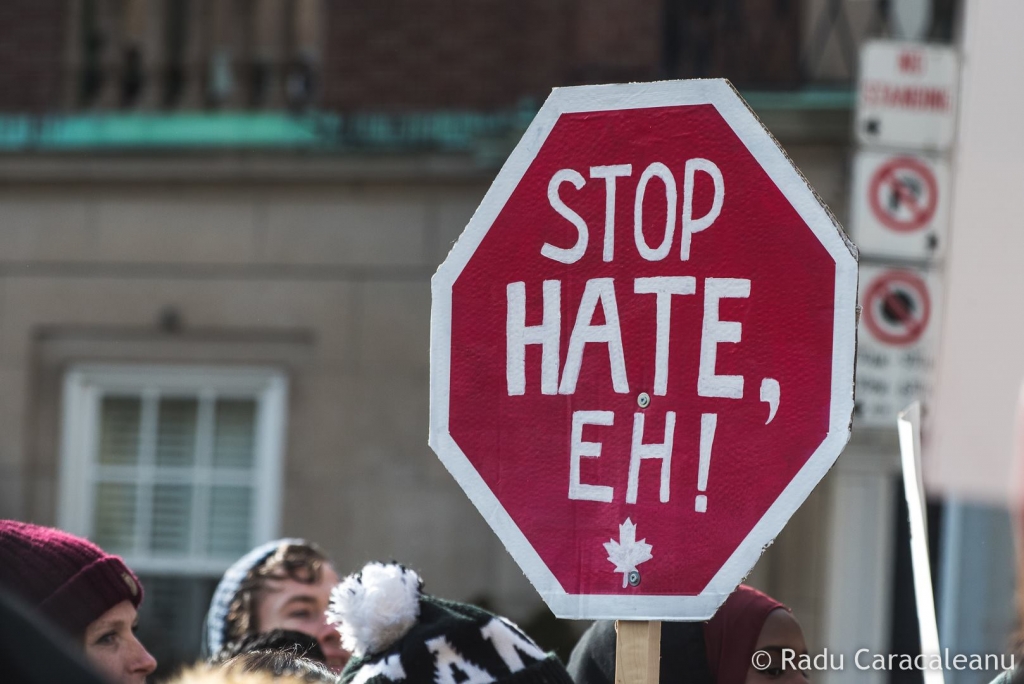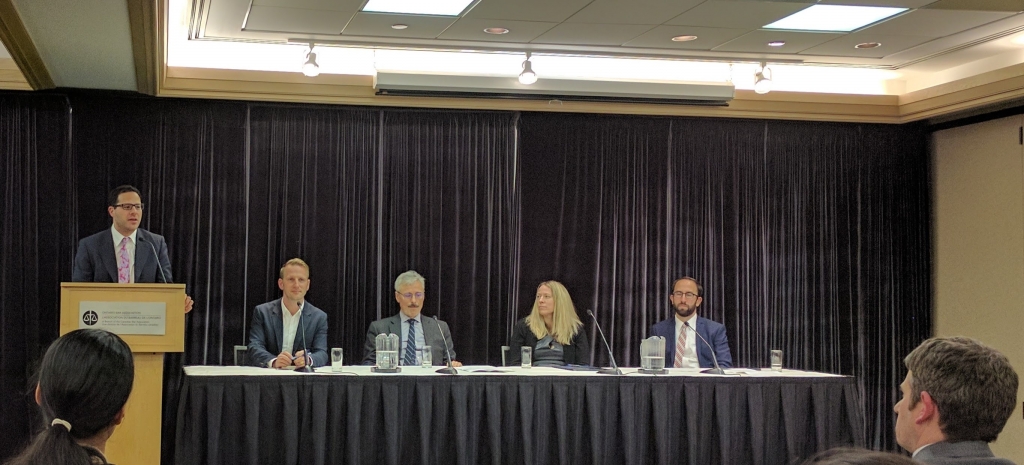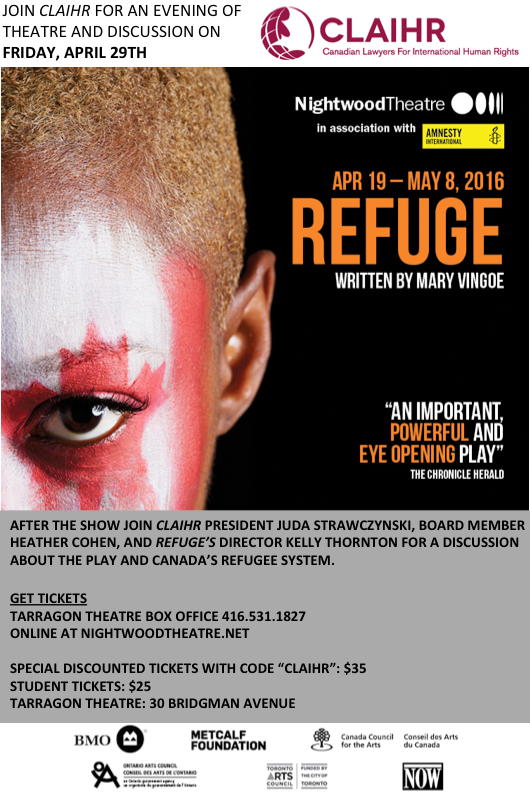Join Canadian Lawyers for International Human Rights and the OBA Foundation for Canadian Responses to the Syrian Refugee Crisis: Reflections on the First Year, a panel discussion and reception.
Date: Thursday, November 24, 2016
Time: 5:30 PM to 8:00 PM
Location: Ontario Bar Association, 20 Toronto Street, Toronto
Register here.
Speakers include:
Mario Calla, Executive Director, COSTI Immigrant Services
Mario J. Calla, BA, MSW, has been the Executive Director of COSTI Immigrant Services since 1987. COSTI is a community service agency that has been providing a broad range of services to immigrants and refugees in the greater Toronto area for the past 64 years. It provides educational, social, and employment services to help all immigrants in the Toronto area attain self-sufficiency in Canadian society. COSTI has been active in working to help bring and settle Syrian refugees.
Louis Century, Goldblatt Partners
Louis Century is an Associate at Goldblatt Partners has has helped the firm to privately sponsor a Syrian refugee family. Before joining the firm, he clerked for Justice Richard Wagner at the Supreme Court of Canada. Louis has held positions at the International Criminal Court working for a defence team, at the Canadian Council for Refugees as a research fellow, and at the Asper Centre for Constitutional Rights working on constitutional appeals. Louis has also conducted refugee status determinations for the United Nations High Commissioner for Refugees in Nairobi. Louis has also recently joined an advisory group that will be exploring next steps for the Refugee Sponsorship Support Program.
Jacqueline Swaisland, Waldman & Associates
Jacqueline Swaisland is an immigration lawyer and a co-founder and the Toronto coordinator of the Refugee Sponsorship Support Program, a national program that trains lawyers to assist groups to privately sponsor refugees. The organization has trained over 1300 lawyers in 11 cities who are committed to assisting sponsor groups to fill out private sponsorship applications for refugees for free. In recognition of her outstanding work with refugees, she was recognized with a CARLA award by the Canadian Association of Refugee Lawyers.
Moderator: Marco Oved
Marco Chown Oved is a reporter on the Star’s foreign desk, with a focus on Europe and Africa. Oved joined the Star’s city desk in 2012, covering everything from crime to politics, but has taken particular interest in stories involving abuse of power and corruption. Before joining the Star, Oved was a foreign correspondent for the Associated Press in Abidjan, Ivory Coast and worked for Radio France Internationale in Paris.
In 2014, Oved was named the R. James Travers international corresponding fellow and traveled to Burkina Faso, Ghana and Peru to investigate the links between Canadian foreign aid and mining. The resulting articles were nominated for a Canadian Association of Journalists investigative award.





